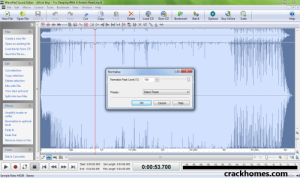
The award jury is composed of: Étienne Barillier, Bertrand Campeis, Karine Gobled, Hermine Hémon and Jean Rébillat.
Uchronies, le laboratoire clandestin de l’histoire by Thierry Camous (Vendémiaire). Djèlí Clark for his uchronic universes ( Les Tambours du dieu noir followed by L’Étrange Affaire du djinn du Caire, Le Mystère du tramway hanté, Maître des djinns and Ring Shout : Cantique ritual ) masterfully translated by Mathilde Montier (L’Atalante) Victor Dixen for his universe Vampyria, with the novels La Cour des ténèbres, La Cour des miracles, La Cour des ouragans (Robert Laffont), the comic Vampyria Inquisition T1 (Éditions Soleil) and Le Tarot Interdit – Vampyria (404 Éditions). Bifrost 105 for three short stories uchroniques “ Père” by Ray Nayler, “ Cavorite” by Laurent Genefort and “ La Tragique Affaire de l’ambassadeur martien” by Eric Brown. Volume 1 received the Prix ActuSF de l’Uchronie 2019. However, the jury would like to highlight volume 3 of the series Le Dernier Atlas by Fabien Vehlmann, Gwen de Bonneval, Hervé Tanquerelle and Fred Blanchard (published by Dupuis). “The range of publications did not allow the jury to decide in this category. Vers Mars by Mary Robinette Kowal, translated by Patrick Imbert (Denoël Lunes d’encre). 
Lupus in Fabula by Jérôme Akkouche (Le Chat Noir).Les Temps ultramodernes by Laurent Genefort (Albin Michel Imaginaire).Les Neuf Vies de Rose Napolitano by Donna Freitas, translated by Lori Saint-Martin and Paul Gagné (Nil).
 Les Enfants de la Terreur by Johan Heliot (L’Atalante). Le Fleuve Électrique by Victor Fleury and Vincent Longrive (Bragelonne). Here is the list of nominees for the 2022 Prix ActuSF de l’Uchronie:
Les Enfants de la Terreur by Johan Heliot (L’Atalante). Le Fleuve Électrique by Victor Fleury and Vincent Longrive (Bragelonne). Here is the list of nominees for the 2022 Prix ActuSF de l’Uchronie: 
The Special Prize, for an original uchronic work, whether it is a game, an exhibition, etc.Įligible works were those published or released in French between Septemand June 30, 2022.Graphic design, for comics, covers and other pictorial initiatives.Middle-Earth and the Hyborean Age are examples of uchronic settings.įrench publisher ActuSF gives the award in three categories:

Some, however, use uchronia to refer to an alternate history The concept is similar to alternate history, but uchronic times are not easily defined but are placed mainly in some distant or unspecified point before current times, and they are sometimes reminiscent of a constructed world. Uchronia refers to a hypothetical or fictional time period of our world, in contrast to altogether-fictional lands or worlds. It is a juried award for work in a specialized segment of sff field, described in the Wikipedia: The shortlist for the 2022 Prix Actusf de l’Uchronie was revealed on October 25.








 0 kommentar(er)
0 kommentar(er)
